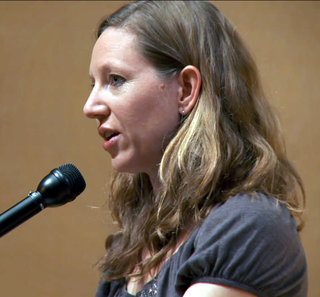A Quote by Dean Koontz
I realized you might make money at writing, and you might even make a living at it. So after that I didn't write stories just for the class but wrote them for the purpose of submitting them somewhere, and at some point in the process, I began writing them just to please myself and that's where you begin to see the real value of a life of writing.
Related Quotes
I write for myself, and perhaps for half a dozen friends. And that should be enough. And that might improve the quality of my writing. But if I were writing for thousands of people, then I would write what might please them. And as I know nothing about them, and maybe I'd have a rather low opinion of them, I don't think that would do any good to my work.
I've quit writing screenplay [adaptations]. It's too much work. I don't look at writing a novel as work, because I only have to please myself. I have a good time sitting here by myself, thinking up situations and characters, getting them to talk - it's so satisfying. But screenwriting's different. You might think you're writing for yourself, but there are too many other people to please.
With my students I give them lots and lots of guided writing. Part of it is as simple as writing a lot but not toward anything. The mind floats. Then I help them see where the language has heat. If we do this a lot in class, students eventually relax into this writing practice and enjoy it. Even just that - writing pleasure without the anxiety of "audience" or "grade" or "success" - is a kind of impetus toward the unfamiliar.
I think writing kind of burns out the flaming question. Sometimes it might feel like when you're living with certain paradoxes and they're unarticulated, you feel pressure to choose. I feel more comfortable living in the paradoxes that I've named and laid out, whereas when I started they might have felt like real agitations. At least I see them more clearly after having sketched them for myself and made a place to stand in relationship to them that felt okay enough to last through the course of a book.
The secret to writing is just to write. Write every day. Never stop writing. Write on every surface you see; write on people on the street. When the cops come to arrest you, write on the cops. Write on the police car. Write on the judge. I'm in jail forever now, and the prison cell walls are completely covered with my writing, and I keep writing on the writing I wrote. That's my method.
When I write my novels, I'm not writing them to make political points. I'm writing them because I passionately love monsters and the weird and horror stories and strange situations and surrealism, and what I want to do is communicate that. But, because I come at this with a political perspective, the world that I'm creating is embedded with many of the concerns that I have. But I never let them get in the way of the monsters.
The worst thing that ever happened to writing is that it became a business, The purpose of business is to make money, and to achieve that end it is necessary to please as many people as possible, to amuse them, to entertain them - in short, to do everything that will help increase the volume of sales.


































